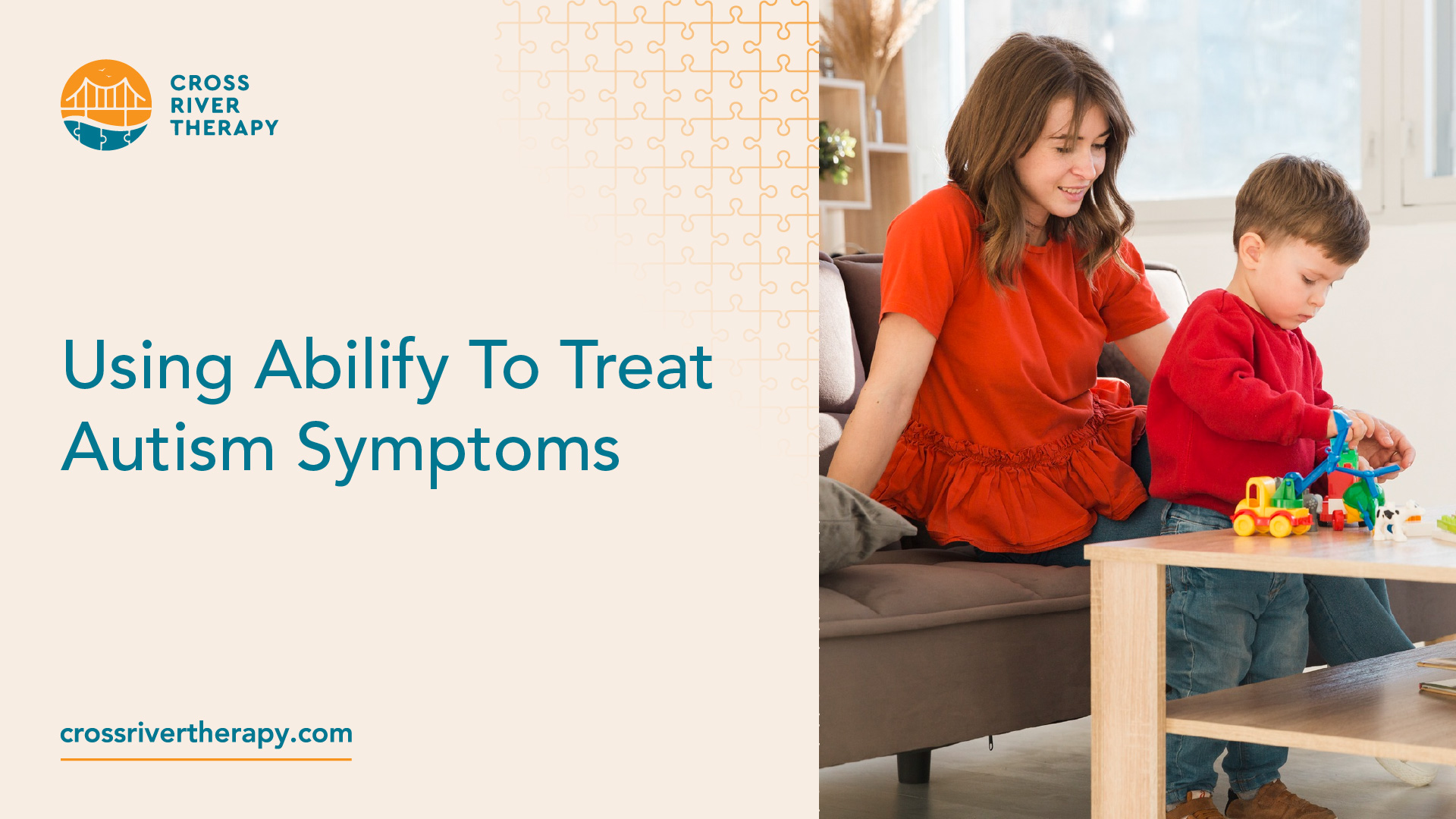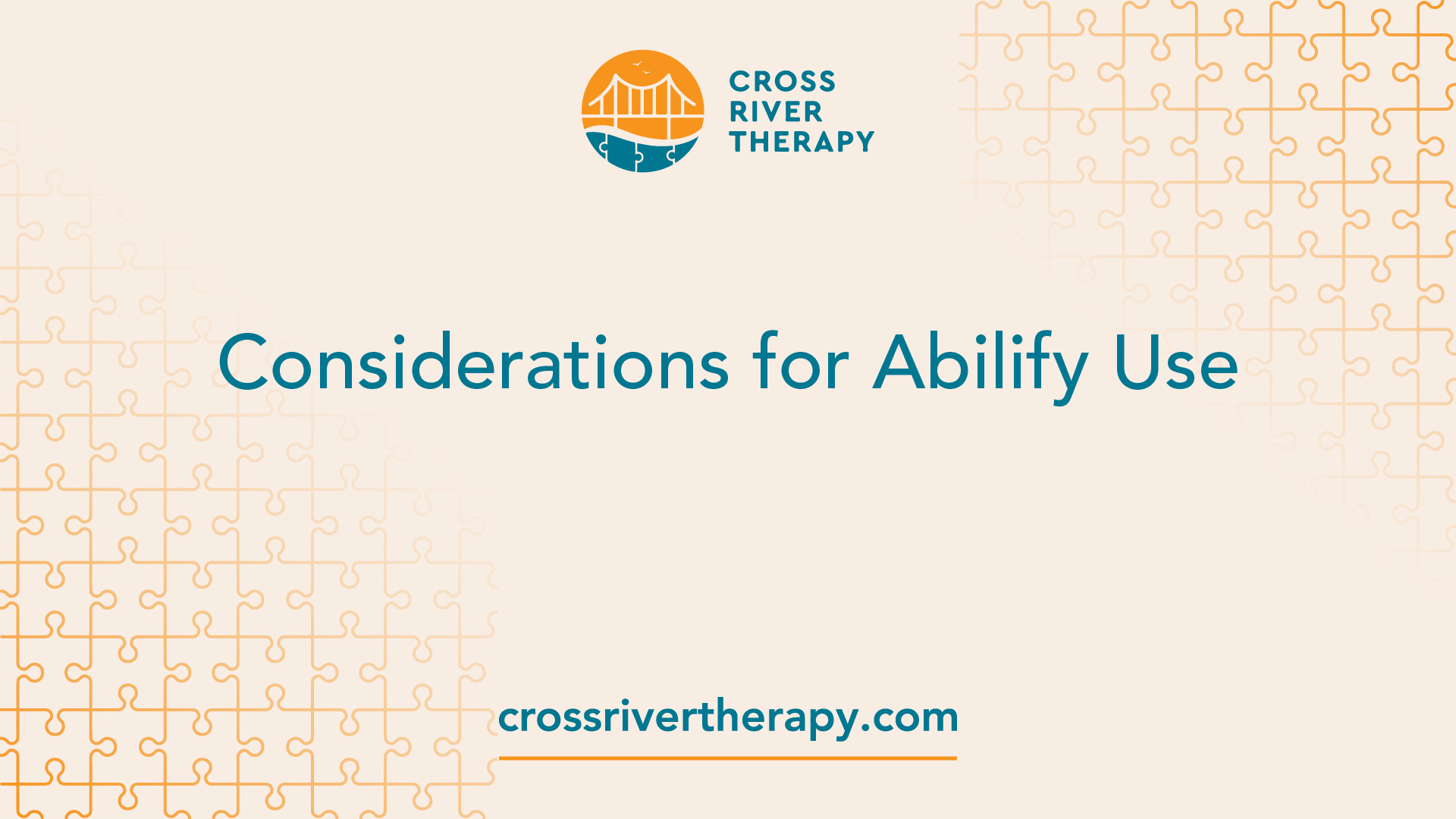Using Abilify To Treat Autism Symptoms
Discover the benefits and considerations of using Abilify for autism.
Understanding Abilify for Autism
When it comes to managing symptoms associated with autism spectrum disorder (ASD), Abilify (Aripiprazole) has been approved by the FDA as a treatment option for children aged 6 to 17 who experience irritability associated with autism.

FDA Approval and Purpose
Abilify received FDA approval in 2009 specifically for the treatment of irritability in children with ASD. It is important to note that Abilify is not a cure for autism, but rather a medication that can help manage certain behavioral symptoms. By modulating neurotransmitters like dopamine and serotonin, Abilify is thought to help regulate brain activity and reduce irritability associated with autism.
Effects on Behavior
Abilify, also known by its generic name aripiprazole, has shown effectiveness in reducing irritability, aggression, and self-injurious behaviors in some individuals with autism. By targeting specific neurotransmitters, it can help regulate brain function and improve behavioral symptoms.
It's important to note that Abilify may not be suitable for everyone, and the decision to use it should be made in consultation with a healthcare professional. Individual responses and side effects can vary, so close monitoring and regular follow-ups are essential to ensure its effectiveness and safety.
Understanding the FDA approval and the effects of Abilify on behavior provides a foundation for exploring further considerations and alternatives for managing symptoms associated with autism. In the following sections, we will delve into topics such as weight changes, side effects, clinical studies, dosage, and administration, as well as alternative options to Abilify.
Considerations for Abilify Use
When considering the use of Abilify to treat autism symptoms, it's important to be aware of certain considerations, including potential weight changes and the associated side effects and risks.

Weight Changes
Children and adolescents taking Abilify may experience an increase in weight compared to those taking a placebo. Studies have shown that the mean increase in weight for those taking Abilify was 1.13 kg Gold Star Rehab. It's important to monitor weight changes closely, as significant weight gain can have implications for overall health and well-being.
While Abilify has a lower propensity to cause weight gain compared to other atypical antipsychotics, some children may still experience a significant increase in weight NCBI. It's essential to discuss any concerns about weight changes with a healthcare professional and work together to develop a plan to manage weight effectively.
Side Effects and Risks
Like any medication, Abilify carries the risk of side effects. Common side effects of Abilify include drowsiness, trouble with thinking, and trouble with controlling movements, which may lead to falls, fractures, or other injuries Mayo Clinic. It's important to closely monitor individuals taking Abilify for any signs of these side effects and report them to a healthcare professional promptly.
In addition to the potential weight changes mentioned earlier, other reported side effects of Abilify include mild sedation and drooling, which are usually observed at the start of treatment and tend to resolve with continued use PubMed Central.
It's crucial to have a thorough discussion with a healthcare professional before starting Abilify treatment. They will be able to provide detailed information about the potential side effects and risks associated with the medication. Additionally, they can help weigh the benefits of Abilify against its potential risks and determine if it is the right choice for the individual.
By being aware of the considerations related to Abilify use, such as potential weight changes and associated side effects, individuals and their families can make informed decisions in consultation with healthcare professionals. Regular monitoring, open communication, and close collaboration with healthcare providers are essential for ensuring the safe and effective use of Abilify in treating autism symptoms.
Clinical Studies on Abilify
To understand the impact of Abilify on autism symptoms, several clinical studies have been conducted. These studies provide valuable insights into the effectiveness of Abilify in managing specific behaviors associated with autism.

Impact on Symptoms
Clinical studies have shown that children with autism who took Abilify for irritability experienced improvements in behaviors such as aggression, self-injury, temper tantrums, and rapidly changing moods. The use of Abilify has been found to be effective in treating children and adolescents with irritability associated with autism.
In two randomized controlled trials (RCTs), significant improvements were observed in irritability, hyperactivity, and stereotypies among children and adolescents with autism spectrum disorder (ASD) who took Abilify when compared to those taking a placebo. The improvements were noted in areas such as irritability, hyperactivity, and stereotypies, as measured by rating scales [1].
Figures courtesy NCBI
Comparison to Placebo
Studies have consistently shown that Abilify is significantly more efficacious than a placebo in treating irritability in children and adolescents with autism spectrum disorder. In a naturalistic, open-label study, all five male youths with pervasive developmental disorders (PDDs) who received aripiprazole (Abilify) responded positively, with a rating of 'much improved' or 'very much improved' on the Clinical Global Impressions-Improvement (CGI-I) scale [3].
These findings suggest that Abilify can effectively improve irritability, hyperactivity, and stereotypy in children and adolescents with ASD, providing potential relief for both the individuals with autism and their families.
It's important to note that the decision to use Abilify for treating autism symptoms should be made in consultation with healthcare professionals. They can provide guidance on dosage, potential side effects, and monitor the progress of the individual.
Dosage and Administration
When it comes to using Abilify for the treatment of autism, determining the right dosage and following proper administration guidelines are essential. It is crucial to work closely with a healthcare professional throughout this process to ensure the best outcomes for your child.
Determining the Right Dose
The appropriate dosage of Abilify for treating autism symptoms should always be determined under the guidance of a healthcare professional. The dosage can vary based on factors such as the individual's age, weight, and specific symptoms. The healthcare provider will carefully assess your child's needs and prescribe the most suitable dosage.
It's important to understand that the dosage may need to be adjusted over time to achieve the desired therapeutic effect while minimizing potential side effects. It is crucial to follow the prescribed dosage and administration instructions provided by the healthcare professional.
Healthcare Professional Guidance
Working closely with a healthcare professional is vital when using Abilify for autism treatment. They will monitor your child's progress, assess the effectiveness of the medication, and make any necessary adjustments to the dosage or treatment plan.
Your healthcare professional will also discuss potential side effects and risks associated with Abilify. It's important to have open and honest communication with them, reporting any concerns or observations about your child's response to the medication.
In addition to medication, your healthcare professional may recommend additional therapies or interventions to complement the treatment plan and support your child's overall well-being. These may include behavioral therapies, functional behavior analysis, or other strategies tailored to your child's specific needs.
Remember, the healthcare professional is your partner in the journey of managing your child's autism symptoms. They have the knowledge and expertise to guide you through the process, ensure the safety and effectiveness of the treatment, and address any questions or concerns you may have.
By following the guidance of a healthcare professional and closely monitoring your child's progress, you can help optimize the benefits of Abilify as part of a comprehensive approach to managing autism symptoms.
Alternatives to Abilify
While Abilify (aripiprazole) is one of the medications approved by the U.S. Food and Drug Administration (FDA) for the treatment of autism-related irritability, there are other alternatives available that may be considered based on the individual needs and preferences of the child. Two commonly used alternatives are risperidone (Risperdal) and off-label antipsychotics.
Risperidone (Risperdal)
Risperidone is another medication approved by the FDA for the treatment of autism-related irritability in children aged 5 to 16 years. It falls under the class of atypical antipsychotics, similar to aripiprazole. Risperidone can help manage irritability and aggression in children with autism spectrum disorder (ASD).
It's important to note that risperidone, like aripiprazole, may have side effects. One common side effect is an increase in the body's production of the hormone prolactin, which can interfere with bone building and cause breast swelling. However, this side effect tends to diminish after around one year of treatment.
Off-Label Antipsychotics
In addition to risperidone and aripiprazole, there are other antipsychotic medications that may be used off-label for the management of autism-related irritability. Off-label use refers to the prescription of a medication for a purpose not specifically approved by the FDA. However, it may be based on clinical judgment and evidence from research studies.
The choice to use off-label antipsychotics should be made in close consultation with a healthcare professional who specializes in autism. They can provide guidance on the potential risks and benefits of off-label medications and help determine if this approach is appropriate for the child.
It's important to note that while medications like risperidone and off-label antipsychotics may help manage irritability and aggression in children with ASD, there are currently no FDA-approved medications specifically for treating the core signs and symptoms of autism spectrum disorder. Early intervention, behavioral therapy, and other non-pharmacological approaches play a crucial role in improving long-term outcomes for individuals with autism.
When considering alternatives to Abilify, it is essential to work closely with healthcare professionals to determine the most suitable treatment plan for the child. They can provide comprehensive guidance and support, taking into account the child's individual needs, potential side effects, and ongoing monitoring of treatment effectiveness.
Benefits and Concerns
When considering the use of Abilify for the treatment of autism, it's important to weigh the potential benefits against the possible concerns. Here, we'll explore the reported positive experiences and benefits, as well as acknowledge the side effects associated with Abilify use.
Reported Positive Experiences
Many individuals with autism and their families have reported positive experiences with Abilify as a treatment option. When used appropriately and under the guidance of a healthcare professional, Abilify has shown potential benefits in managing certain behavioral aspects of autism.
Some reported benefits include improvements in mood, behavior, and overall well-being. Abilify has been associated with a reduction in irritability, hyperactivity, and stereotypies in children and adolescents with autism. Additionally, individuals have reported reductions in repetitive behaviors, improved social interactions, and increased attention span.
It's important to note that the effectiveness of Abilify can vary among individuals. What works for one person may not have the same impact on another. Therefore, it's crucial to consult with a healthcare professional to determine if Abilify is the right choice for your child with autism.
Acknowledging Side Effects
As with any medication, it's important to be aware of the potential side effects and risks associated with Abilify use. While Abilify can provide relief for certain autism symptoms, it may also present some concerns.
Common side effects of Abilify include weight gain, sedation, drooling, and tremors [8]. These side effects can vary in severity and impact each individual differently. It's crucial to monitor any changes in your child's well-being and promptly communicate any concerns to their healthcare professional.
It's worth noting that the decision to use Abilify should be made in consultation with a healthcare professional who can provide guidance based on the individual's unique needs and circumstances. They will take into account the potential benefits and risks associated with Abilify and help determine if it is the most suitable option for your child.
By considering both the reported positive experiences and the potential side effects, you can make an informed decision regarding the use of Abilify for the treatment of autism symptoms. Open communication with healthcare professionals and close monitoring of your child's well-being are essential aspects of ensuring the best possible outcomes.
References
[1]: https://www.goldstarrehab.com/parent-resources/autism-abilify
[2]: https://www.crossrivertherapy.com/autism/autism-abilify
[3]: https://www.ncbi.nlm.nih.gov/pmc/articles/PMC3043611/
[4]: https://www.autismspeaks.org/expert-opinion/behavioral-medication-side-effects



